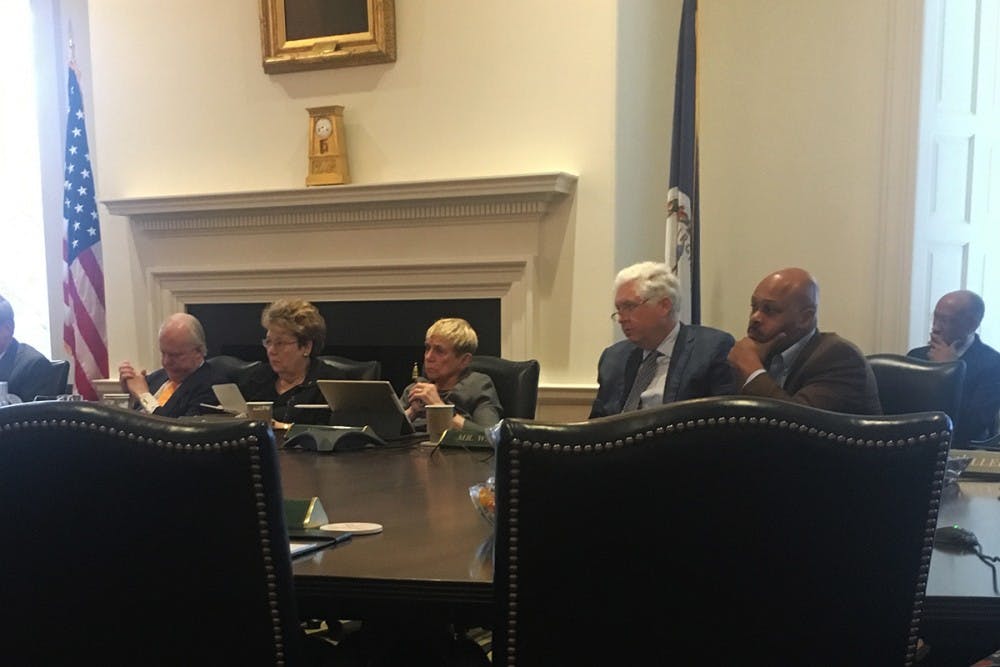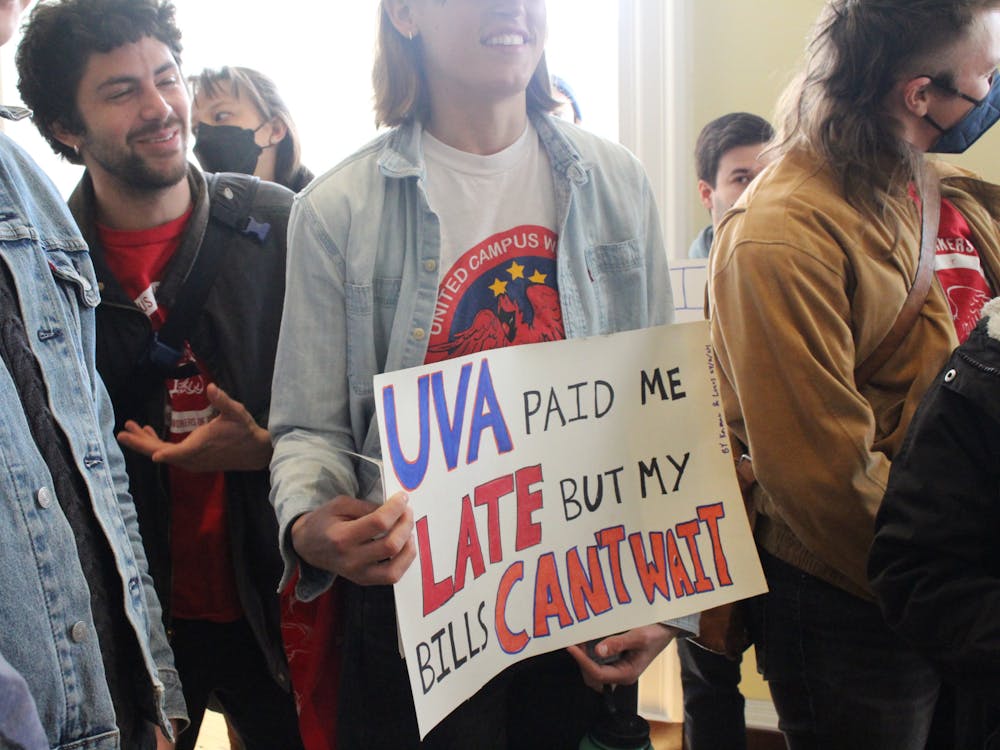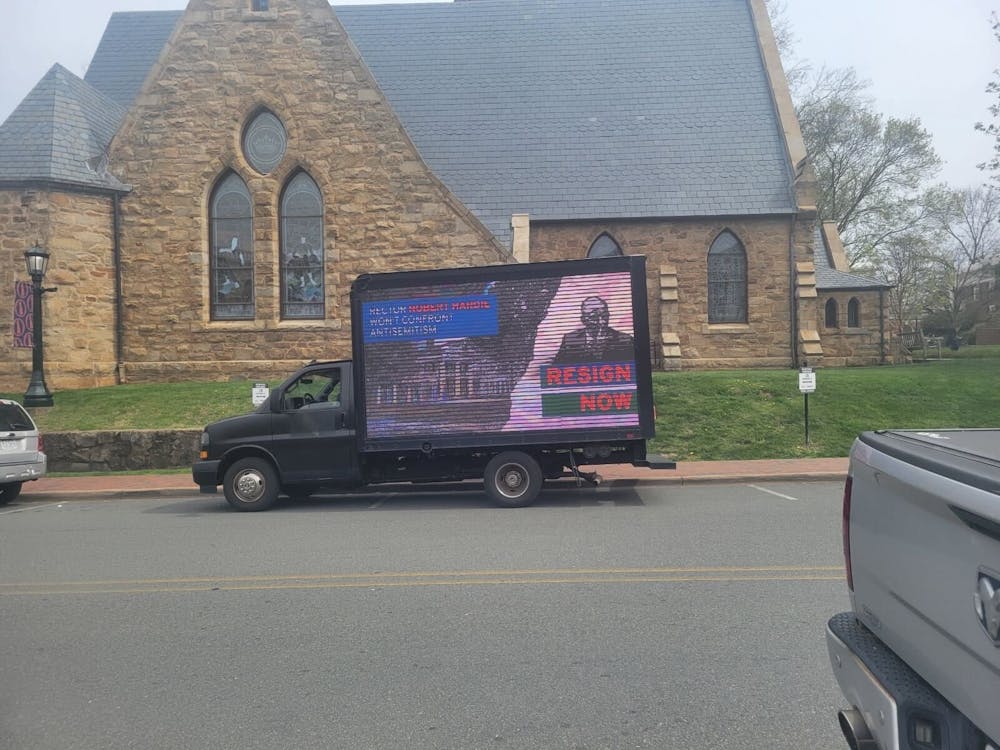The Ad Hoc Committee on Commonwealth Engagement met Thursday to consider U.Va.’s role in health care throughout Virginia and various ways the University Health System can improve the general quality of life for citizens in the local area and statewide.
In his report on progressive methods to approach the improvement of health care, Richard P. Shannon, the University’s executive vice president for health affairs, suggested a focus on social and behavioral factors that affect the well-being of Virginians.
“When you think about health and medical care at its frontier, I would submit that we largely provide products today in an economic model that are exclusively medical,” Shannon told the committee. “But what we are learning is that a healthy workforce is critical to the economy, and if you are not attending to the health and well-being of the workforce ... your ability to compete in the new-world economy will be dramatically reduced.”
Shannon used the example of premature mortality to demonstrate the importance of these social determinants on an individual’s health. He revealed that of the factors that help predict premature mortality, nearly 60 percent can be directly determined by social and behavioral factors, including access to prenatal care and a viable family support system.
The University Health System provides resources that diminish these social factors that affect the health of a community, but the main issue is having access to these resources. Factors such as lack of personal transportation and stigma surrounding specific races or genders receiving prenatal care can prevent individuals from accessing necessary health care — negatively affecting their families and communities.
“So, if you’re going to create a healthy workforce, and you are a purveyor of medical services, how do you turn your attention to social and behavioral determinants of health as a focal point for building a healthy workforce?” Shannon said.
To address this issue, the University Health System has recently assembled a group of clinical scholars. A team of social scientists and engineers are working to develop predictive models about how social and behavioral determinants can influence health.
The committee also discussed the economic benefits of an improved quality of life for the University, including a more efficient workforce. By demonstrating the positive health benefits of addressing social health issues, the University hopes to become a leader in this approach to medicine, increasing revenue as well establishing its position as a top research institute.
In a survey of members in the University of Virginia Health System, Shannon and his team found that almost 7 percent of workers are financially stressed, despite their salary and benefits provided to them by the University.
The University plans to address these issues by instituting innovative techniques utilized by Shannon and his team, such as geomapping — a technique that maps social and behavioral factors based on zip codes. It also hopes to increase funding for the Health System through federal grants.
In addition, the Committee discussed the possibility of extending programs that analyze the effects of addressing social and behavioral determinants on health into other regions of Virginia, including cities like Richmond.
Committee Chair Maurice A. Jones noted the importance of confronting these issues and referred to the concentration of negative social health factors such as homelessness and joblessness in larger cities like Richmond.
“Unless we address [these] issues, that map will stay the same,” Jones said. “This is a huge opportunity for us as a University.”





